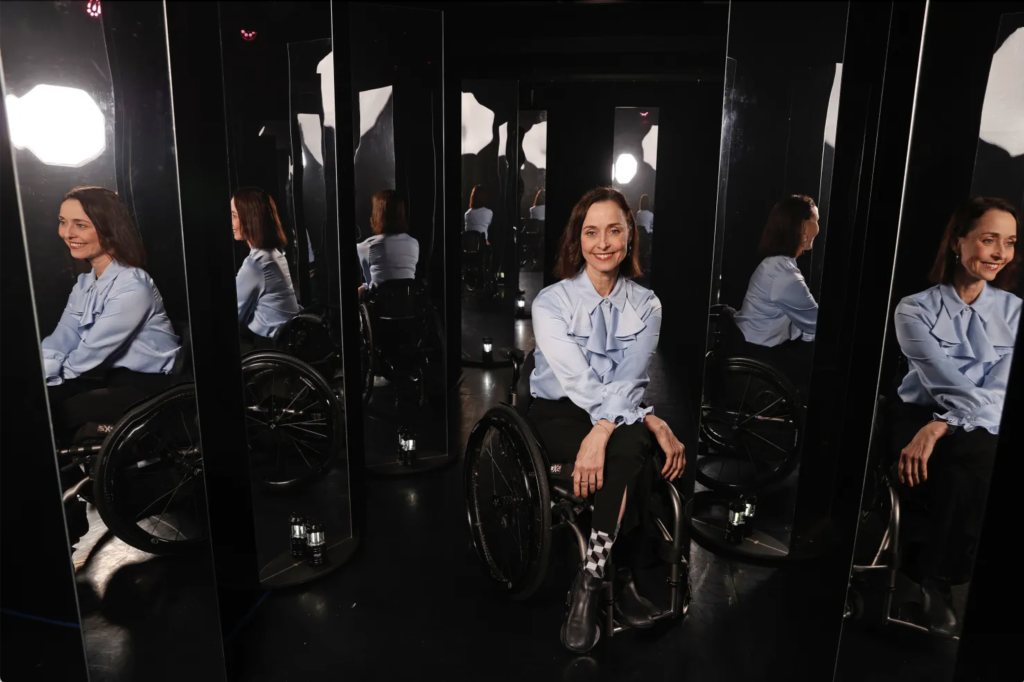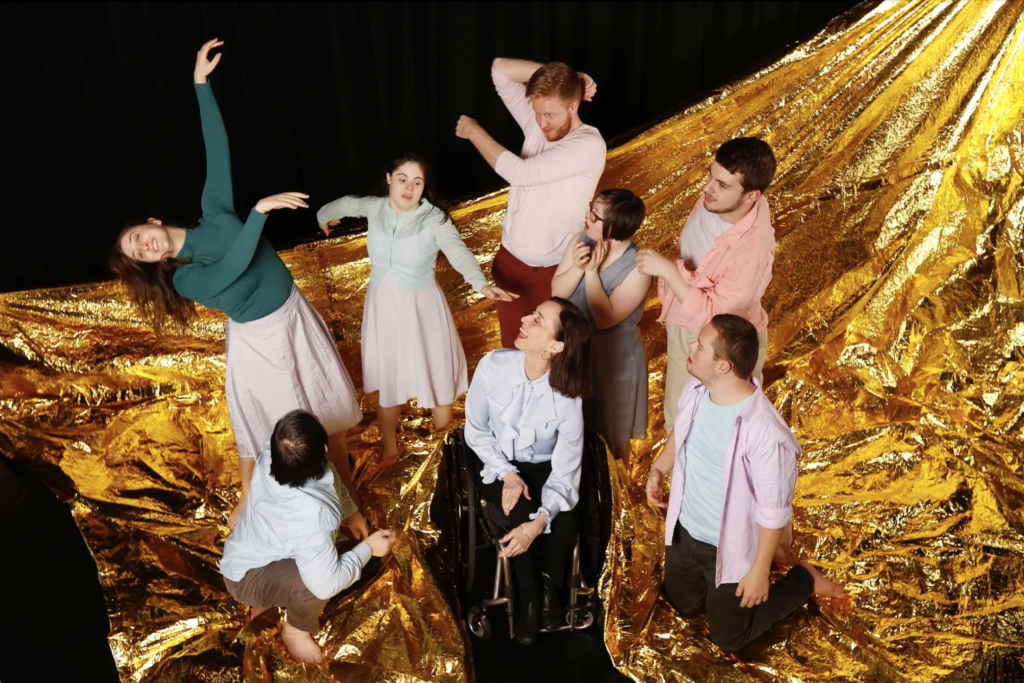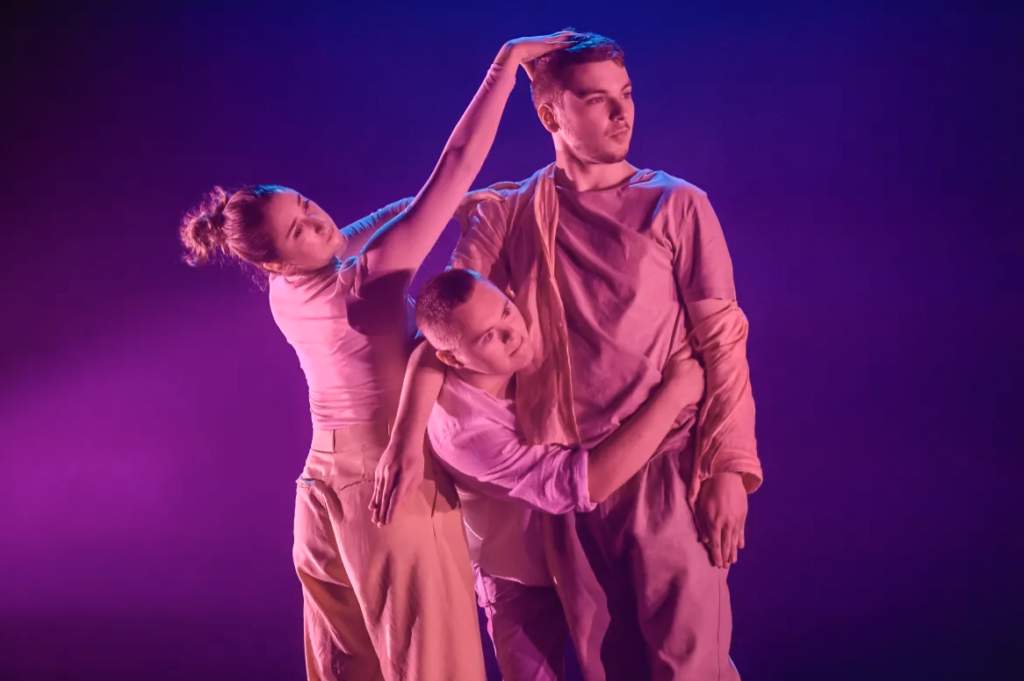Article written by Chantal Nguyen for The Sydney Morning Herald
Award-winning choreographer Michelle Ryan was trying to get to her apartment in Adelaide during lockdown when she was stopped by police. Ryan, who has multiple sclerosis and uses a wheelchair, would usually arrange to be dropped off at an access-friendly entrance shared with a COVID medi-hotel. On that day, Ryan was also carrying luggage from a visit to her dying father.
Police would not let her through. “I explained I had a wheelchair,” she recalls. “I explained I lived in the apartment block and I explained I had a very large suitcase. And at all points he said ‘No’. Then I asked for help. I said, ‘Can you help me with my suitcase?’ He said, ‘It’s not my job.’ All these people were just standing there looking at me and no one helped. Someone from the hotel went to help and he was told to get back.”

Stranded, she began to cry. “All that needed to happen was for the police officer to get on his radio and just say, ‘There’s a lady in a wheelchair who needs help’ … but it didn’t happen. I threw my bag on to my lap and had to wheel downhill with a large suitcase between my legs, which was quite humiliating.”
Ryan tore the rotator cuffs in both shoulders as a result. “I was crying. I couldn’t sleep that night,” she says. “The incident really got me thinking of my dancers. They catch taxis, do different things, that can also place them in a vulnerable position.”
The experience led Ryan to create Exposed, a dance piece about vulnerability, created for the able-bodied and disabled dancers of Restless Dance Theatre.
Ryan became Restless’s artistic director in 2013, and is seen as a trailblazer in Australian mixed-ability dance.
Her own story is one of resilience and renewal. She was an able-bodied dancer with a thriving international career when an MS diagnosis turned her life upside down and steered her to the mixed-ability space.
Exposed, she says, is “all about being human. A lot of dance is about strength and execution and technique. Our guys have that. But it’s also their strength to show their vulnerability on stage.”
Her favourite moment is a duet for two men. “It represents my dad. Two days before he passed, he put his forehead on me and said, ‘Shelley, I don’t think I’ve got long.’ And I just said, ‘I know, Dad.’ And, so, I just have a very simple duet where one dancer is trying to hold the other dancer, but he keeps slipping away. It gets me teary every time.”
Her parents, “such strong and beautiful people,” were her major supports before and after her diagnosis.
Her family instilled in her ideas about right and wrong, and treating herself and others with respect. “I think that’s carried through in not only my life but in my work too,” she says.
She regards Restless Dance Theatre as an opportunity to bring diversity to the stage. “That’s always a thing which is so underrepresented in Australia. One in five people have a disability and yet you don’t see that on stage.”

Ryan says Australia is only just starting to include disabled people in the arts. “It’s still a little bit tokenistic at times, if I can be blunt. Just because you work with one person with disability doesn’t mean you know how to integrate properly.”
She also maintains that disability is no excuse to lower professional expectations. “In the able-bodied dancer space, I had a really great professional career,” she says.
“I was used to that high-level company life and expectations of what it is to be a dancer. And when I came to Restless I really deliberately chose not to change my process.
“I was told there were certain things that the Restless dancers would not be able to achieve … And I was just like, ‘No, they can achieve that. So let’s try.’ I treat all the dancers as I would any other dance company. You set the bar high and they’ll reach it.”

The breakthrough moment came at the 2017 Adelaide Festival, when they were performing Intimate Space. “We deliberately didn’t use the word ‘disability’ in any of our [advertising]. And we got a very different audience. That was the moment of change. It was funny because I had so many people coming up to me after, going ‘Oh! They’re really good!’ It was like – again – set your bar higher.
“In an ideal world, we would just say we work with fabulous artists. And I think even this Opera House season is trying to appeal to the very strong dance audience that’s in Sydney and really challenge their perceptions of who can dance. So, it’s like, ‘We’re not a disability company, we’re an arts company.’ ”
Exposed is at Opera House Studio from August 30 to September 3.
Buy tickets HERE!

